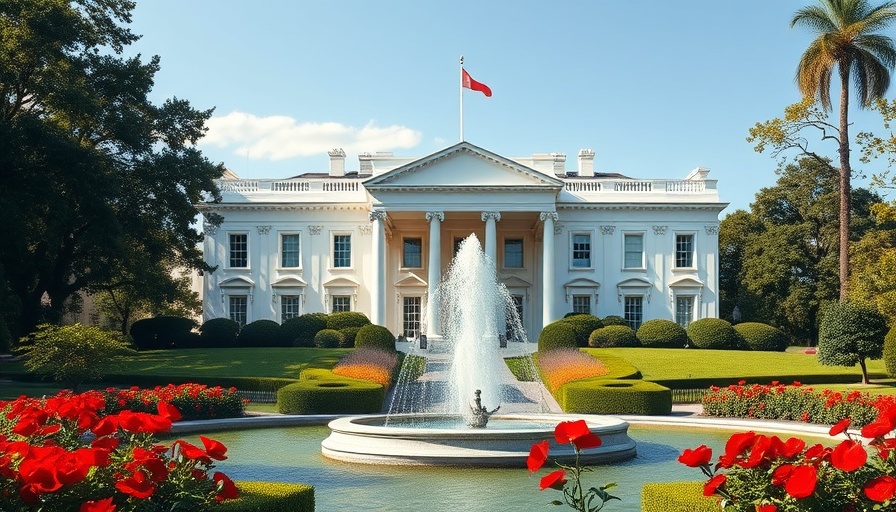
Unveiling the Highest-Paid Staffers at the White House
The recent disclosure from the White House regarding its highest-paid staffers has stirred discussions across America. Salaries reported range from just over $59,000 to an impressive $225,700, showcasing the financial scope within the current administration. Among those earning nearly $200,000 are notable figures such as Press Secretary Leavitt and Border Czar Homan, shedding light on the financial priorities and decisions driving operations in Washington.
The Salary Landscape: Who's at the Top?
Salary transparency has become an essential topic in national discussions. The range observed not only reflects the varying degrees of responsibility but also offers a glimpse into the expertise that the administration seeks. While many understand that skilled policymakers command substantial salaries, it is interesting to note that eight individuals are, in fact, working without any salary at all. This raises questions about motives and the types of public service being rendered.
Examining the No-Salary Staffers: A Unique Approach
The decision by some to forgo salaries could be interpreted in several ways. It may reflect a commitment to public service, diverting potential paychecks to causes they deem more vital. This practice contrasts sharply with criticisms from various corners of the political spectrum that claim public officials are excessively compensated. Understanding this juxtaposition is crucial, particularly as discussions surrounding government spending and compensation continue.
Context and Background: The Evolution of White House Compensation
Historically, the salaries drawn by White House staff have fluctuated depending on the administration and its policies. Media scrutiny has increased, making the examination of government compensation a contentious and complex topic. For instance, during previous administrations, the public was often more inclined to overlook these numbers amidst general prosperity and perceived government trust. Now, scrutiny has heightened, with people demanding transparency and accountability.
Relevance to Current Events: How Salary Choices Impact Public Perception
In the wake of various national crises, particularly economic recovery and public trust in government, transparency concerning salaries and financial accountability has never been more significant. The public's perception of whether their leaders are appropriately compensated can directly influence voter sentiment and engagement in future elections. When compensation decisions are made public, they can sway opinions and alter the landscape for how the administration is viewed.
Future Predictions: What This Could Mean for Government Transparency
Looking to the future, the discussion surrounding government salaries may lead to broader reforms in how public service roles are compensated. As citizens demand more transparency, there might be an increase in policies that require complete disclosure of income for government officials. This shift would signify a more significant trend towards enhancing accountability in public service and potentially restoring public trust.
Conclusion: The Call for Accountability and Transparency
As we reflect on the salary revelations from the White House, it's essential for the public to remain informed and engaged on issues of financial accountability within government. Understanding the implications of these figures not only allows citizens to gauge the effectiveness of their leaders but also encourages a more responsible and transparent approach to public service. We urge readers to stay updated and engage with discussions on government salaries and their broader implications in the national news landscape.
 Add Element
Add Element  Add Row
Add Row 



 Add Row
Add Row  Add
Add 


Write A Comment